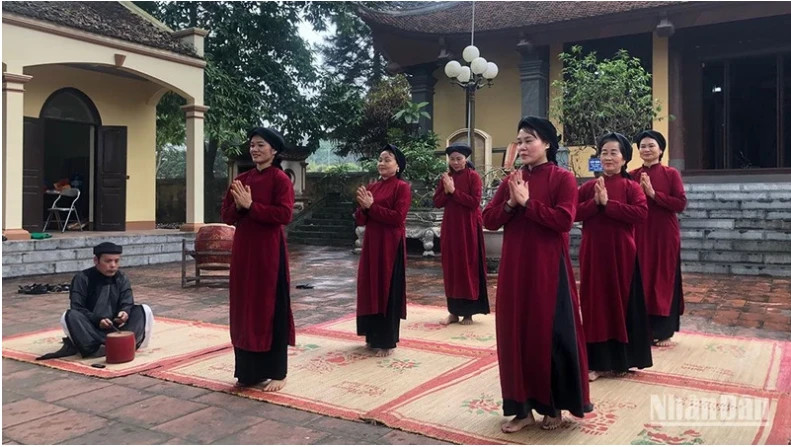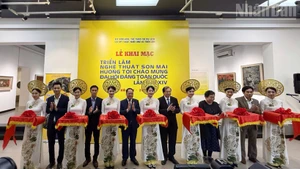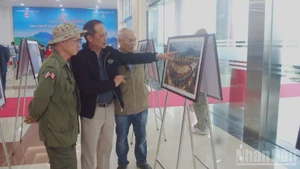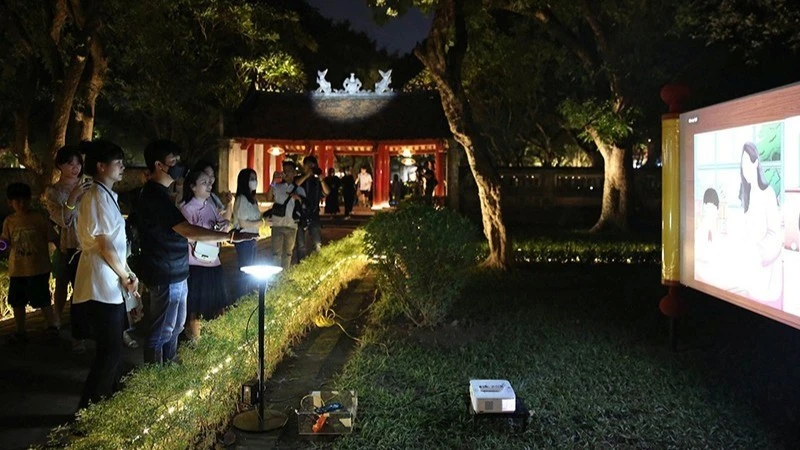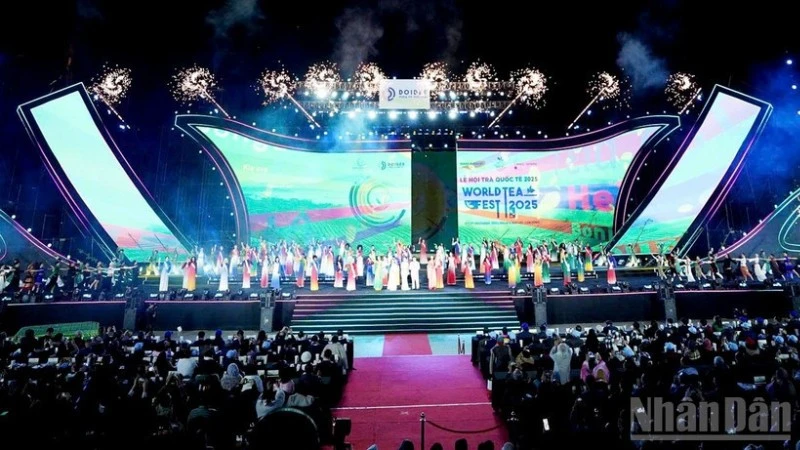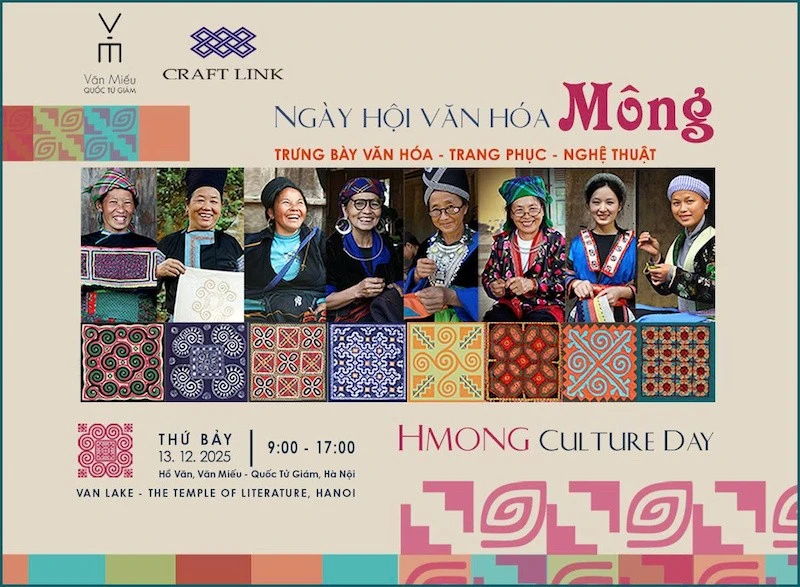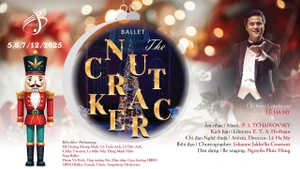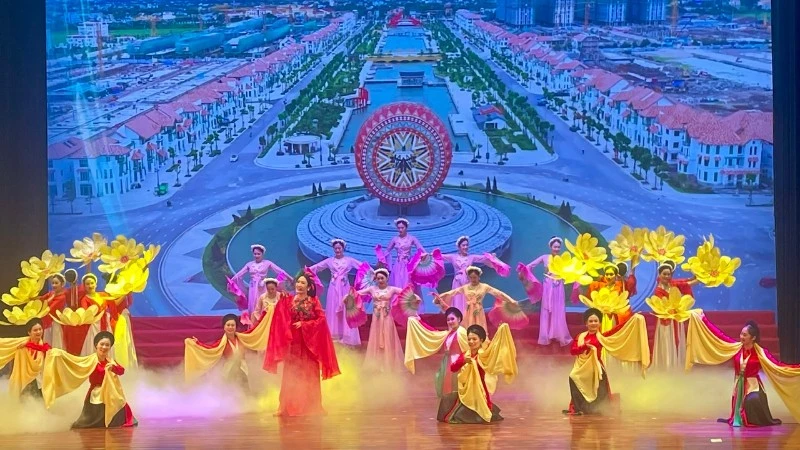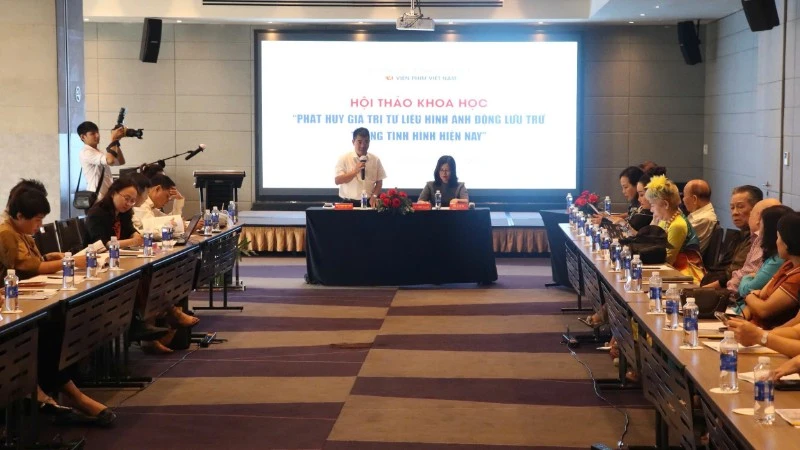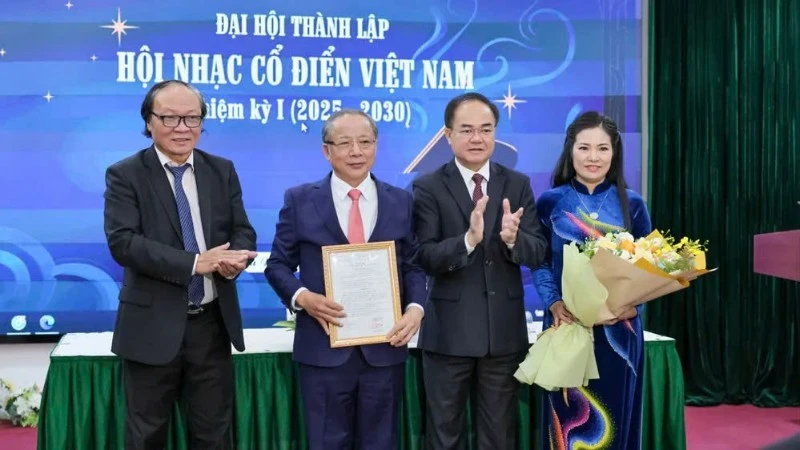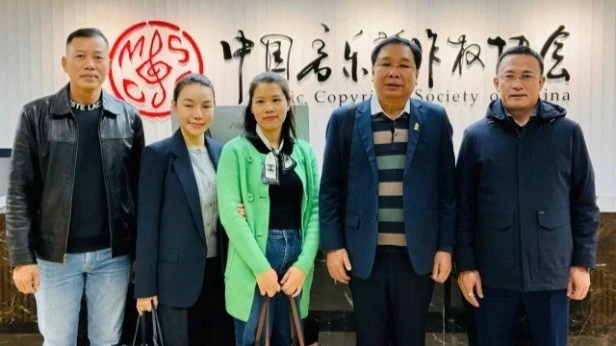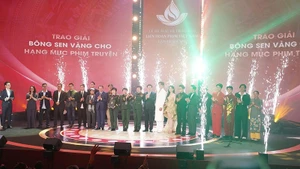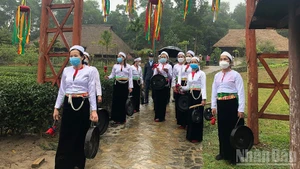Xoan singing originates from the Hung Kings' era, closely associated with ancestor worship and community rituals. The first xoan songs were composed for performance in ceremonies at Lai Len Temple, Thet Communal House, and other relics around the Hung Temple area.
Over time, xoan singing gradually spread to many localities, becoming an indispensable part of folk cultural activities. Xoan guilds were formed and taught from generation to generation, preserving the unique features of this art form.
Through many historical events, Xoan singing once faded away due to war, social upheavals and changes in cultural life.
However, thanks to the efforts of artisans and local authorities, xoan singing has been strongly restored. In 2011, UNESCO recognised Phu Tho xoan singing as an intangible cultural heritage in need of urgent protection. In 2017, this art form was upgraded to an intangible cultural heritage of humanity, marking an important turning point in the journey of the heritage preservation and promotion of the authority and people of Phu Tho Province.
To preserve xoan singing, the authorities have included this art form in the educational program at schools in Phu Tho Province. The Department of Culture, Sports and Tourism in coordination with the Department of Education and Training has implemented it at all levels of education, each level will have its own curriculum suitable for each class to achieve the best results, inviting xoan singing artisans to teach.
Elderly artisans enthusiastically guide the younger generation, helping them approach and inherit the heritage in a methodical manner. At the same time, the schools will organise for their students to learn and experience real xoan singing at Lai Len Temple, Hung Lo Communal House.
The students will learn and participate in activities: organising incense offering ceremonies; introducing and explaining, learning about the history and value of xoan singing, exchanging with artisans, and experiencing unique xoan singing melodies. They can also perform at xoan singing competitions and festivals in the province.
At the annual Hung Kings' Death Anniversary, artisans and students perform xoan singing during the festival at Hung Temple Relic Site, introducing visitors from all over the world to the intangible cultural heritage of humanity of their homeland.
These activities will help students better understand the cultural and historical values of this art form, while also evoking pride and awareness of national heritage preservation.
Recognising the importance of xoan singing, Phu Tho Province has introduced this art form during tours, helping visitors experience and learn about local history and culture.
Apart from listening to xoan singing, visitors can also directly learn and practice with the artisans, creating interesting and profound experiences, thereby attracting large numbers of tourists, especially young people and international tourists.
The “Xoan singing in ancient village” (Hat Xoan Lang Co) program has now become a highlight activity, leaving a strong impression on people and tourists from all over the country at the annual Hung King’s death anniversary.
The “Xoan singing in ancient village” event this year will be held from April 3 - 7 (the 6th to the 10th day of the 3rd lunar month) at the relic sites associated with the Hung King worship.
Despite having significant achievements, the preservation of xoan singing still faces many challenges.
Currently, the number of elderly artisans is not many, while the younger generation is less interested in traditional art. It is necessary to teach and encourage the younger generation to participate in heritage preservation.
Preservation programs must be maintained and expanded, encouraging young people to participate in xoan singing classes.
In addition, in the context of integration and globalisation, popular culture is dominating the entertainment market, creating fierce competition with traditional art forms.
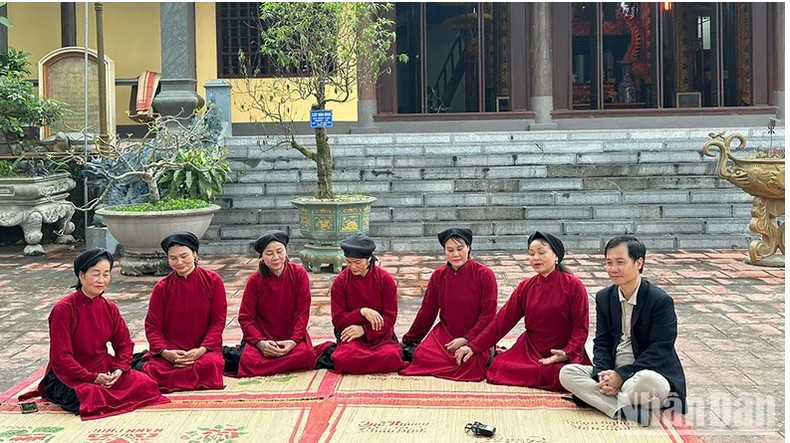 |
| Researcher Nguyen Quang Long talks with xoan artists. (Photo: NDO) |
To help xoan singing stand firmly, it is necessary to innovate the way to approach the audience, while combining original preservation and suitable creativity with the times. At the same time, there needs to promote communication and promote xoan singing on digital platforms, bringing this art form closer to domestic and foreign audiences.
Combining xoan singing with tourism and education not only helps in the preservation of this art form but also contributes to promoting Vietnamese culture to the world, affirming the sustainable value of the intangible cultural heritage of humanity.
